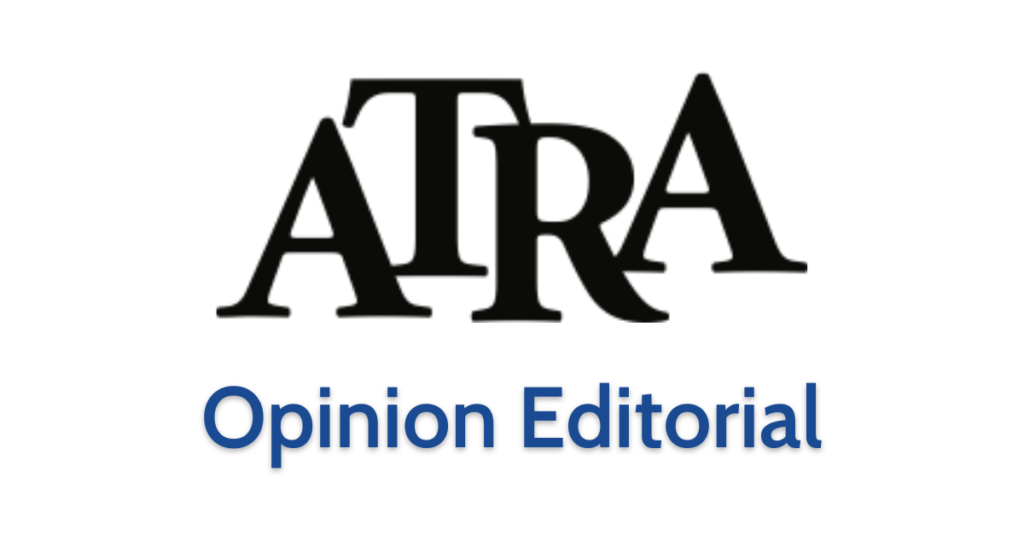‘Highly Unusual’ Rehearing of Louisiana Case Raises Judicial Independence Concerns
Louisiana Supreme Court Waffles Under Political Pressure, ATRA Brief Urges Court to Stand Strong

Together, let’s forge a legal landscape that makes equitable access to justice a living reality for all Georgians.
This op-ed was originally published by the Georgia Star News.
Governor Brian Kemp announced recently that legal reform will be a top priority of his administration moving forward.
The governor astutely pointed out how the ease of filing abusive lawsuits has caused insurance premiums to surge. This shift imposes a significant burden on hardworking Georgians and is a direct threat to the state’s economic wellbeing.
Kemp’s announcement is a welcome step, considering the alarming trajectory that’s led Georgia to earn the undesirable title of the No. 1 Judicial Hellhole® in the nation for the first time.
Georgia’s been on the American Tort Reform Foundation’s annual list since 2019, but catapulted to the top after a jarring $1.7 billion verdict against Ford Motor Co. last year.
Unfortunately, this isn’t an isolated incident – rather, it’s emblematic of a larger trend toward high-dollar, “nuclear” verdicts – those exceeding $10 million – occurring more frequently. From 2010 to 2019, 53 nuclear verdicts were reported in Georgia in personal injury and wrongful death cases, totaling more than $3 billion.
The Ford Motor Co. case is a stark reminder of how antiquated laws can tip the scales of justice. Ethically questionable events marred the entire trial, while a dated Georgia law restricted the jury from accessing crucial evidence – including the fact that seatbelts weren’t worn properly.
In a separate case last year, the Georgia Supreme Court still refused to repeal the law, saying it was a matter for the legislature to address.
However, the legislative response has been far from satisfactory. Despite the escalating need for legal reform, Georgia’s General Assembly failed to pass a seatbelt evidence admissibility bill and remains relatively stagnant on this front, leaving their constituents to grapple with the consequences of lawsuit abuse.
Georgia’s annual “tort tax” of $1,213 per person and the loss of nearly 124,000 jobs each year to excessive tort costs harshly illuminate the severity of the situation.
Premises liability cases have witnessed exorbitantly high verdicts, particularly in lawsuits blaming and holding businesses liable for the criminal conduct of others on their property.
A June ruling by the Georgia Supreme Court underscored the gravity of the issue. The case involved CVS Pharmacy and a plaintiff, who was not a customer, who was shot during a criminal act in CVS’s parking lot. The verdict extended the scope of liability for property owners by embracing an overly broad test for “foreseeability.” The court’s decision means juries must now evaluate the “totality of circumstances relevant to the premises.” This new standard raises concerns about expanding liability to crimes occurring even near the premises, and is likely to disproportionately impact small business owners operating in high-crime areas.
Unfortunately, the repercussions of these decisions directly reverberate in the lives of Georgians who bear the brunt of exorbitant insurance rates, inflated costs for groceries, and fewer employment opportunities due to lawsuit abuse – a relentless economic strain that threatens their very welfare.
Georgia’s vulnerability is further exacerbated by third-party litigation financing, involving financial entities that back mass torts litigation or provide loans to plaintiffs in personal injury suits in exchange for a percentage of their awards. These third-party groups have a clear financial stake in the outcomes of litigation they’re investing in, yet aren’t required to disclose their involvement. This means potentially exploitative financing ventures are permitted to operate with no regulatory oversight.
Regrettably, this is yet another predatory practice in the legal system the General Assembly has failed to address.
Governor Kemp’s pledge to confront this perilous path is commendable, and his initiative deserves our support. Yet, the responsibility to foster change doesn’t rest solely on his shoulders.
State legislators in Wisconsin and West Virginia recently required disclosure of consumer litigation financing while Florida passed landmark legal reforms this year. It’s time for Georgia to follow suit.
Lawmakers must heed the call of urgency and stop allowing misinformation and the undue influence of the trial bar to cloud their judgment. It’s up to judges to also stand resolute in rejecting the practices of some plaintiff’s lawyers who seek to abuse the system.
As the gateway to change opens with Governor Kemp’s commitment, the General Assembly will need to take bold steps, bearing in mind that justice is not a privilege for the select few. Together, let’s forge a legal landscape that makes equitable access to justice a living reality for all Georgians.
Hunter Loggins is the Georgia State Director for the National Federation of Independent Business. Tiger Joyce is President of the American Tort Reform Association.
Louisiana Supreme Court Waffles Under Political Pressure, ATRA Brief Urges Court to Stand Strong
Left unchecked, these jurisdictions will continue dragging down economic growth and undermining justice through rampant lawsuit abuse.
Claimants Given Opportunity to Vote on Plan; Judge to Reconsider Scientific Validity of Plaintiffs’ Experts
Legitimate consumer protection demands sound science and impartial analysis — not distorted data designed to manufacture lawsuits.
Law Firms Spent $168M+ on 2.2M Ads in Georgia
ATRA’s Latest Studies Reveal Financial Influence and Lack of Transparency in Pennsylvania’s Campaign Finance Systems